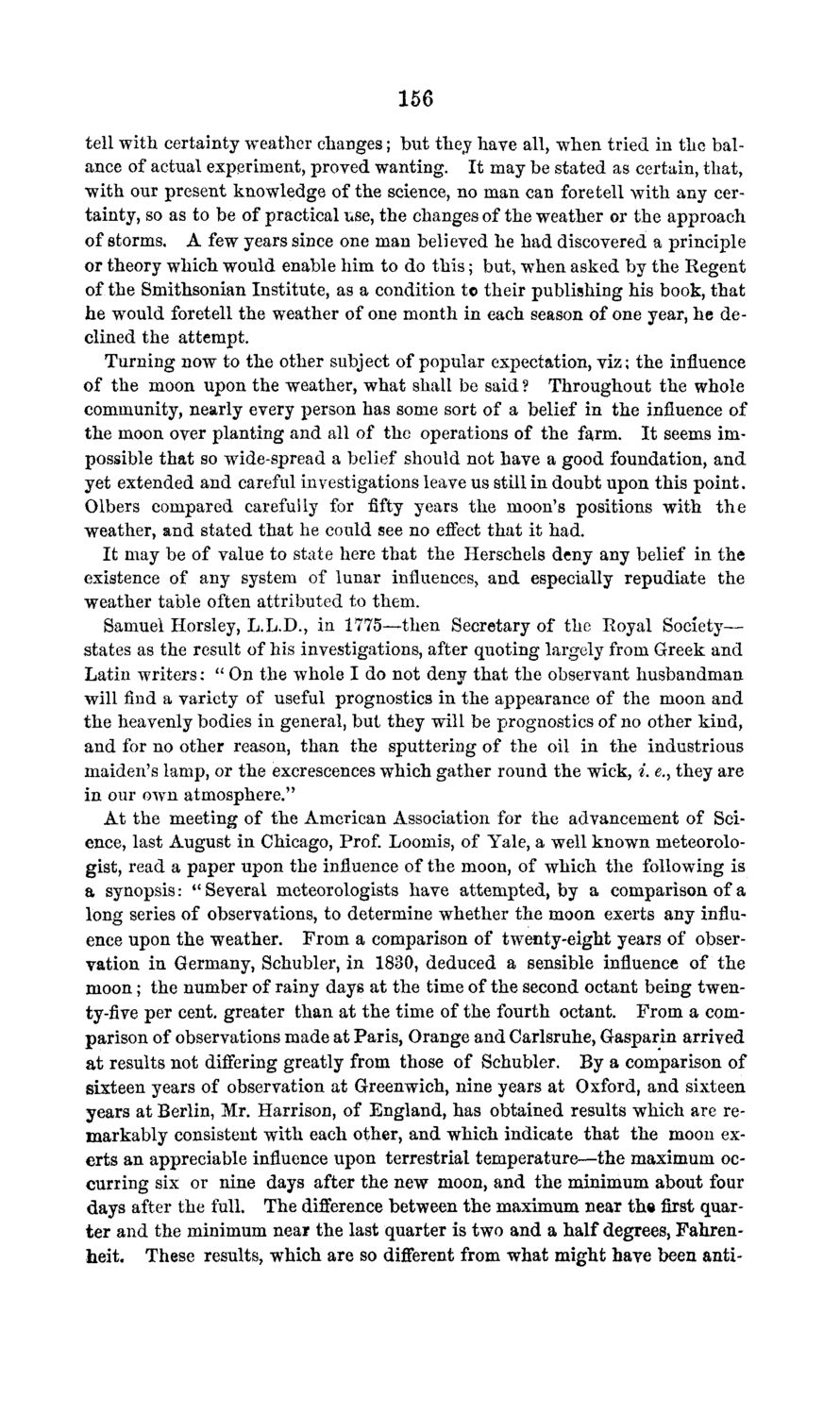| |
| |
Caption: Board of Trustees Minutes - 1869
This is a reduced-resolution page image for fast online browsing.

EXTRACTED TEXT FROM PAGE:
156 tell with certainty weather changes; but they have all, when tried in the balance of actual experiment, proved wanting. It may be stated as certain, that, with our present knowledge of the science, no man can foretell with any certainty, so as to be of practical use, the changes of the weather or the approach of storms. A few years since one man believed he had discovered a principle or theory which would enable him to do this; but, when asked by the Regent of the Smithsonian Institute, as a condition to their publishing his book, that he would foretell the weather of one month in each season of one year, he declined the attempt. Turning now to the other subject of popular expectation, viz; the influence of the moon upon the weather, what shall be said ? Throughout the whole community, nearly every person has some sort of a belief in the influence of the moon over planting and all of the operations of the farm. It seems impossible that so wide-spread a belief should not have a good foundation, and yet extended and careful investigations leave us still in doubt upon this point. Olbers compared carefully for fifty years the moon's positions with the weather, and stated that he could see no effect that it had. It may be of value to state here that the Herschels deny any belief in the existence of any system of lunar influences, and especially repudiate the weather table often attributed to them. Samuel Horsley, L.L.D., in 1775—then Secretary of the Royal Society— states as the result of his investigations, after quoting largely from Greek and Latin writers: " On the whole I do not deny that the observant husbandman will find a variety of useful prognostics in the appearance of the moon and the heavenly bodies in general, but they will be prognostics of no other kind, and for no other reason, than the sputtering of the oil in the industrious maiden's lamp, or the excrescences which gather round the wick, L e., they are in our own atmosphere." At the meeting of the American Association for the advancement of Science, last August in Chicago, Prof. Loomis, of Yale, a well known meteorologist, read a paper upon the influence of the moon, of which the following is a synopsis: "Several meteorologists have attempted, by a comparison of a long series of observations, to determine whether the moon exerts any influence upon the weather. From a comparison of twenty-eight years of observation in Germany, Schubler, in 1830, deduced a sensible influence of the moon; the number of rainy days at the time of the second octant being twenty-five per cent, greater than at the time of the fourth octant. From a comparison of observations made at Paris, Orange and Carlsruhe, Gasparin arrived at results not differing greatly from those of Schubler. By a comparison of sixteen years of observation at Greenwich, nine years at Oxford, and sixteen years at Berlin, Mr. Harrison, of England, has obtained results which are remarkably consistent with each other, and which indicate that the moon exerts an appreciable influence upon terrestrial temperature—the maximum occurring six or nine days after the new moon, and the minimum about four days after the full. The difference between the maximum near the first quarter and the minimum near the last quarter is two and a half degrees, Fahrenheit. These results, which are so different from what might have been anti-
| |